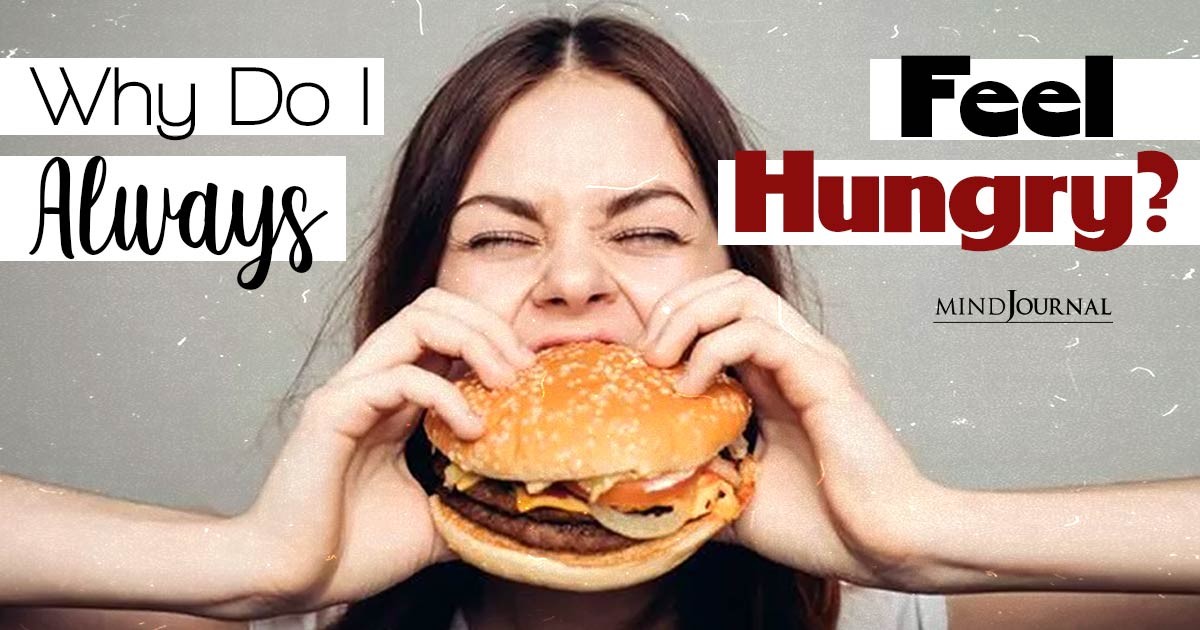
Why Do I Always Feel Hungry? 10 Surprising Reasons Behind Your Endless Hunger Pangs
Do you ever find yourself constantly wondering, “Why am I always feeling hungry?” or “Why do I feel hungry after eating?” The feeling of hunger is completely normal and necessary for our survival.
Why do I always feel hungry? Our bodies are intelligent and send signals to our brain when we need fuel, urging us to grab a snack or sit down for a meal. However, it can be frustrating and concerning when hunger persists even after consuming a substantial amount of food. That’s why we’re here to shed light on ten potential reasons behind your never-ending hunger. By delving into the details of this hunger dilemma, we hope to provide you with valuable insights into your body and empower you to take control of your health. If you’ve been pondering questions like “Why do I feel so hungry all the time?” or “Why am I feeling hungry after eating?”, you’ve come to the right place.
Related: Discover the Connection Between Food and Mental Health: 10 Mood-Boosting Foods That Reduce Stress
Inadequate protein intake: One significant factor behind your persistent hunger might be insufficient protein consumption. Protein is a crucial dietary component that plays a vital role in promoting satiety and keeping us feeling satisfied. When you don’t consume enough protein, you may find yourself wondering, “Why am I still hungry after eating?” This is because protein takes longer to digest than carbohydrates or fats, thus staying in your stomach for a longer time and helping regulate your appetite. Ensure you include a source of protein in every meal and snack, such as lean meat, fish, eggs, tofu, beans, or nuts.
Fluctuating blood sugar levels: Consuming carbohydrate-rich foods results in the breakdown of glucose, which serves as the primary source of energy for your cells and brain. Insulin, a hormone, assists glucose in entering your cells for energy, causing a natural decrease in blood glucose levels. When glucose levels drop, your cells receive a signal that there is less energy available, triggering hunger signals and prompting your body to crave more food. Research has shown that individuals with significant blood sugar dips tend to experience increased hunger throughout the day and consume more calories. Choosing foods that work well with your body can help you feel fuller for longer and reduce overall calorie intake.
Insufficient fiber intake: If you frequently ask yourself, “Why am I still hungry after eating?” or “Why do I always feel hungry?”, the answer may lie in inadequate fiber consumption. Fiber is another nutrient that aids in satiety and satisfaction. It slows down the digestion process, preventing spikes in blood sugar levels and keeping hunger at bay. If your diet lacks sufficient fiber, you may find yourself constantly feeling hungry. Incorporate plenty of fruits, vegetables, whole grains, and legumes into your diet as they are excellent sources of fiber.
Low-fat diet: Fat is an essential nutrient that contributes to prolonged satiety due to its slow gastrointestinal transit time. Additionally, consuming fat triggers the release of hormones that promote feelings of fullness. If your diet is low in fat, you might experience more frequent hunger and increased cravings for high-sugar foods. A study found that individuals on a low-fat diet reported greater hunger and more cravings for carbohydrates compared to those on a low-carb diet. Including nutrient-dense, high-fat foods in your diet, such as coconut oil, fatty fish, avocados, olive oil, eggs, and full-fat yogurt, can increase feelings of fullness and reduce hunger.